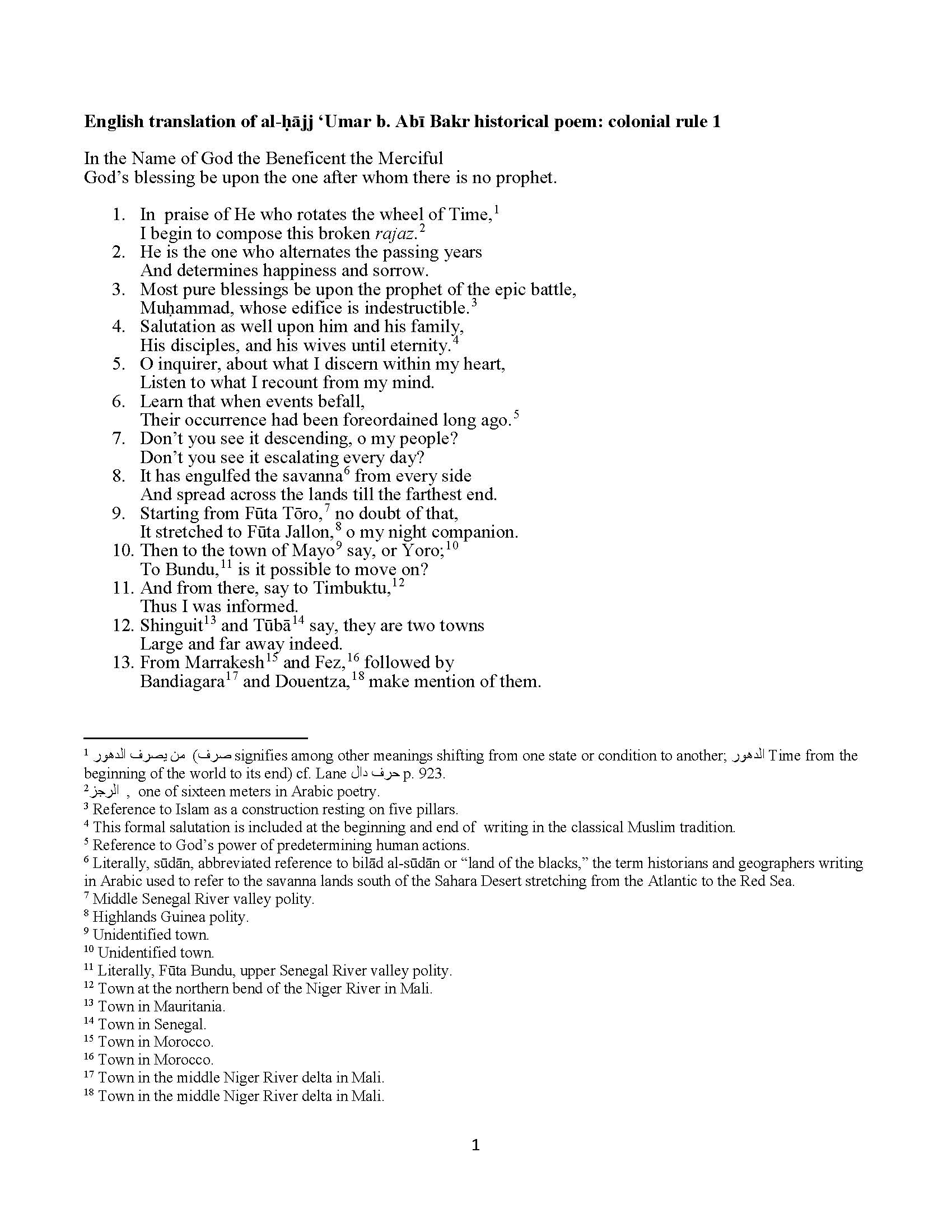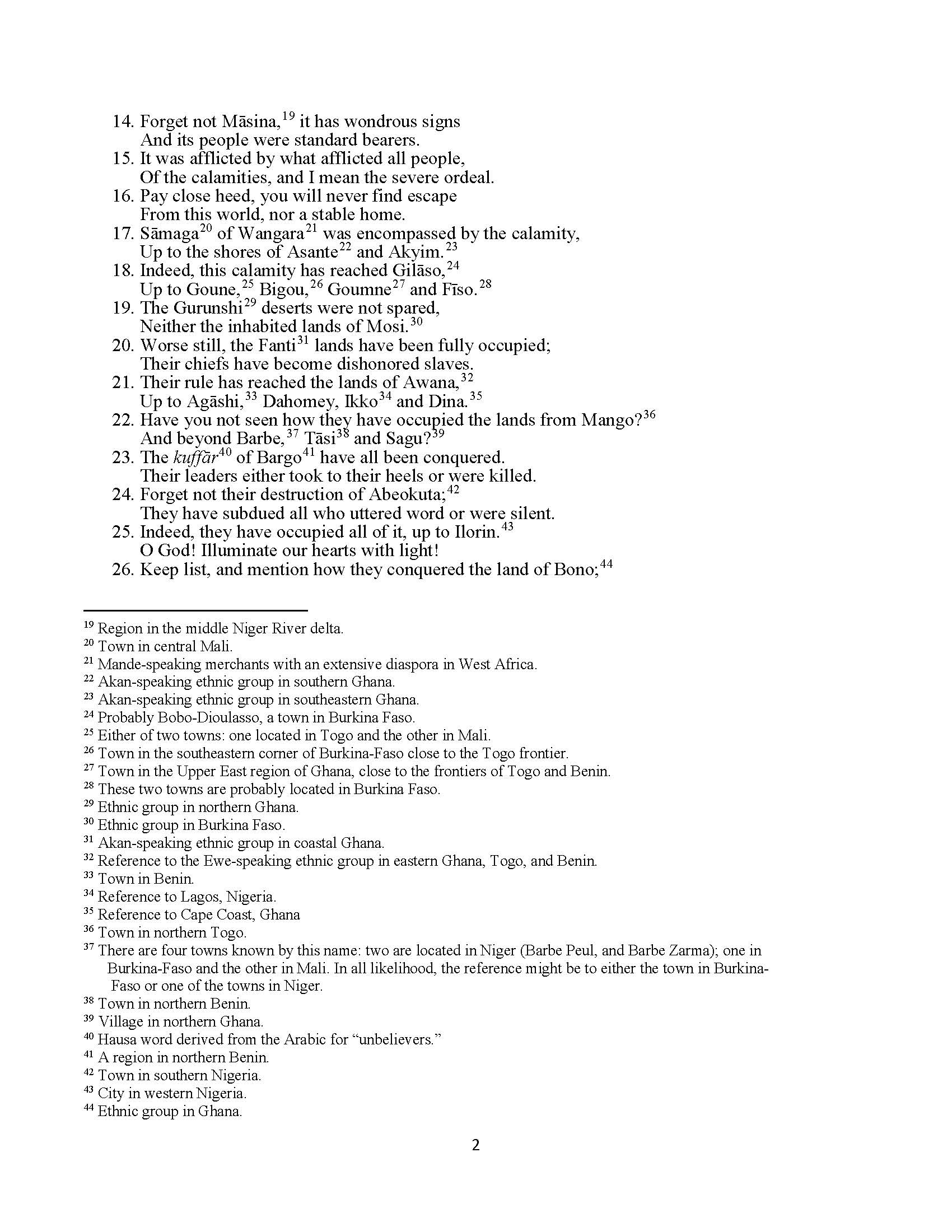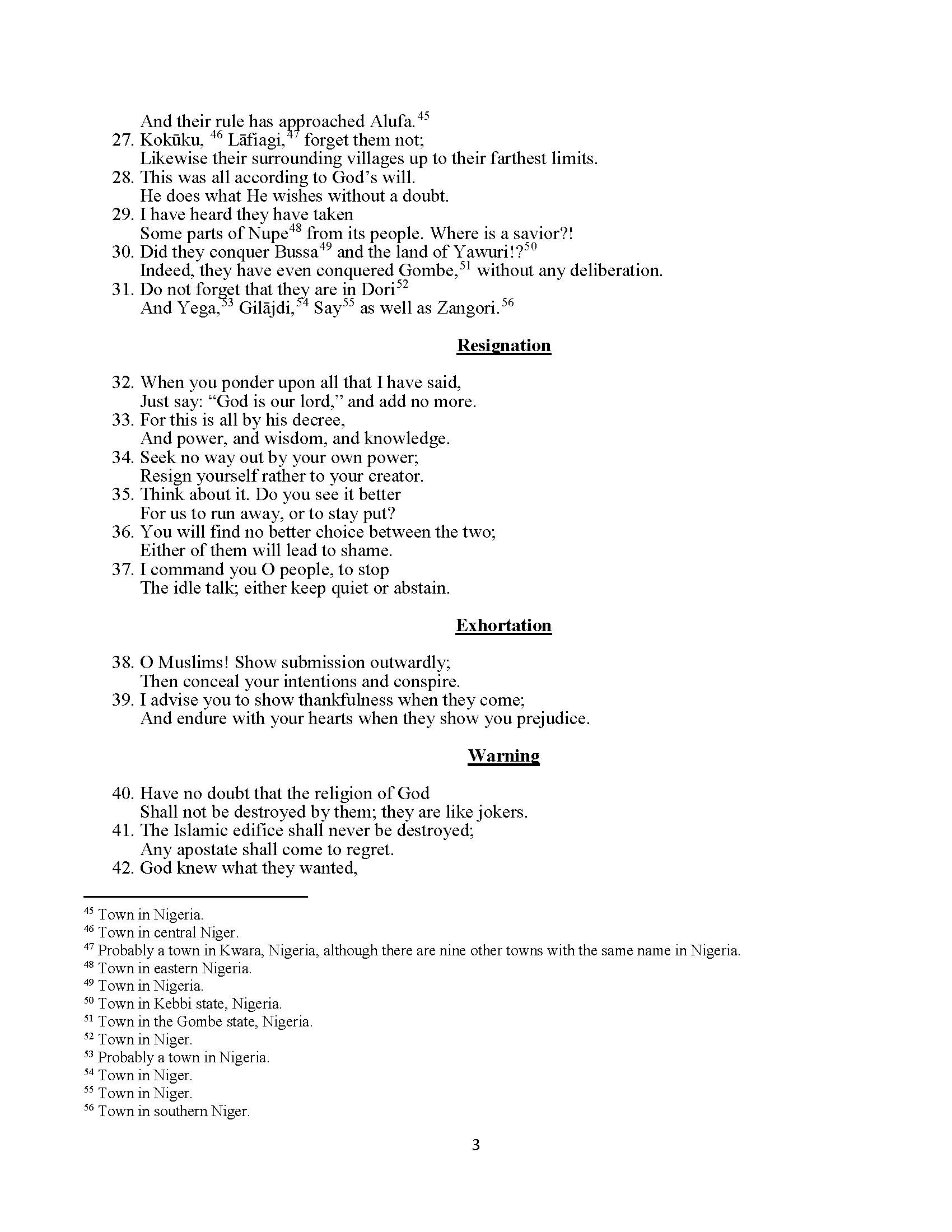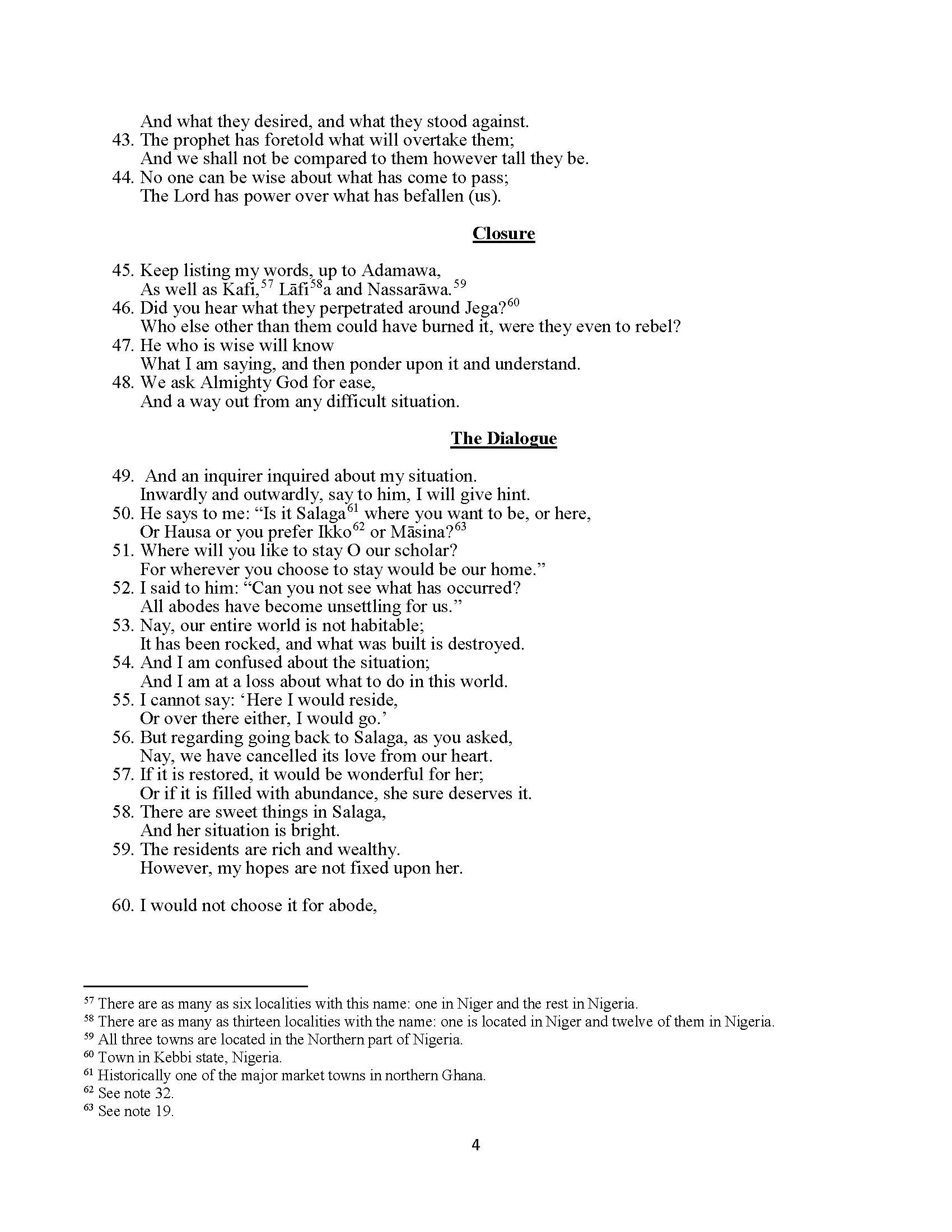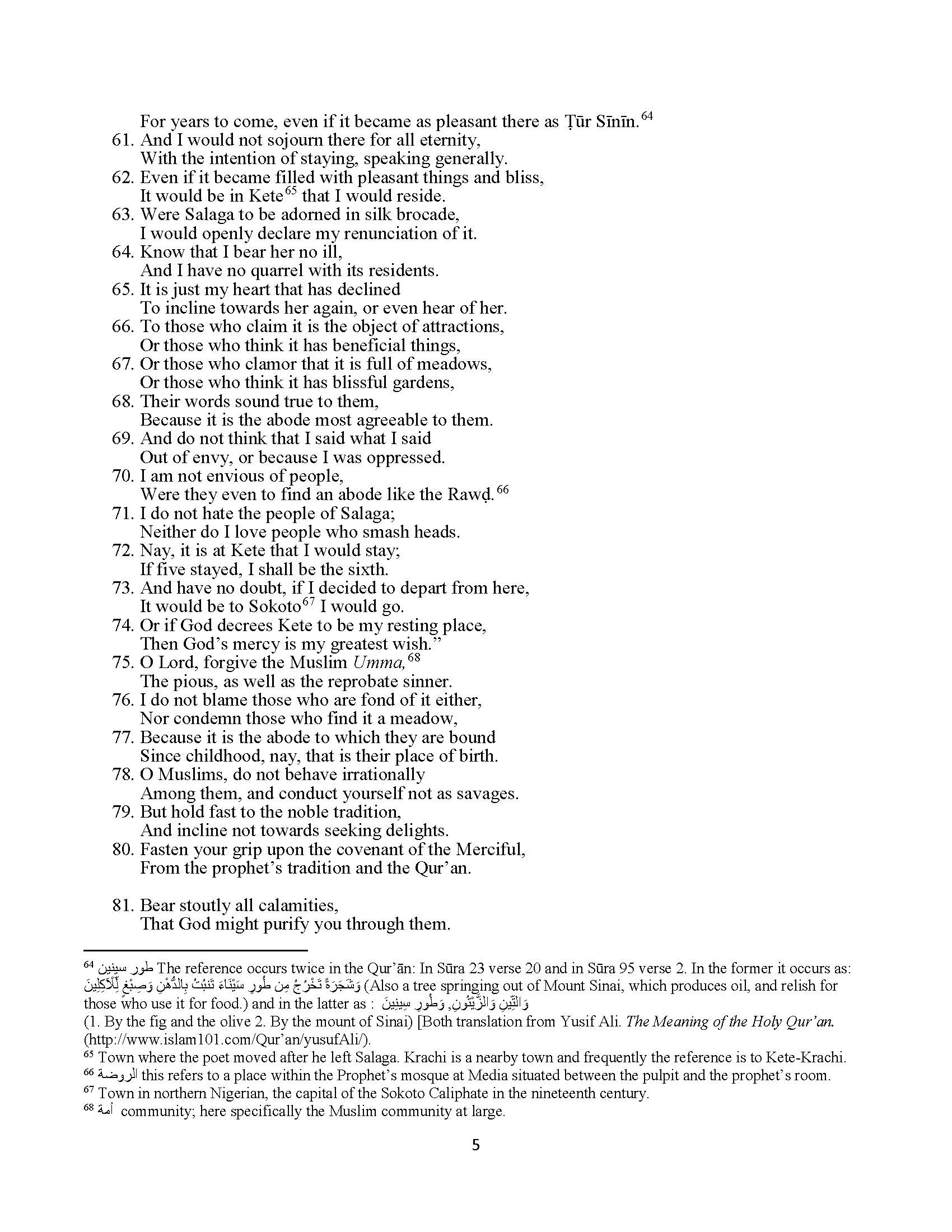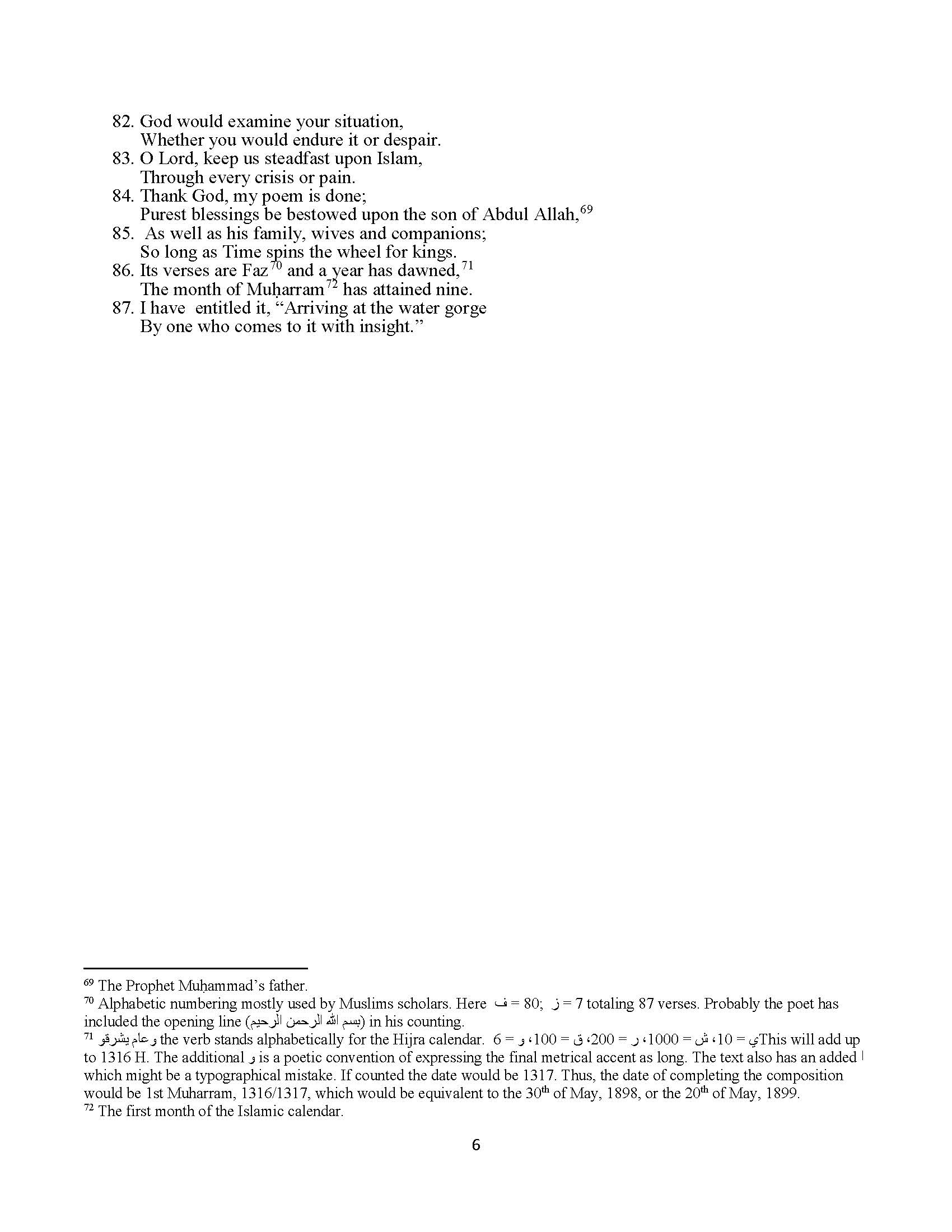Discourses of Muslim Scholars in Colonial Ghana
by John Hanson and Muhammad al-Munir Gibrill
Colonial Rule 1 (historical poem)
Creator: al-ḥājj 'Umar ibn Abī Bakr (al-ḥājj Umar Krachi)
Contributing Institutions: Muhammad al-Munir Gibrill; John H. Hanson; Institute of African Studies, University of Ghana at Legon;MATRIX: The Center for Humane Arts, Letters & Social Sciences Online at Michigan State University
Contributor: Muhammad al-Munir Gibrill (translator and transcriber); John H. Hanson (reviewer)
Description: This historical poem is one of three composed by al-ḥājj 'Umar ibn Abī Bakr of Kete-Krachi (commonly al-ḥājj 'Umar Krachi) to describe and comment on the European colonial rule in West Africa.
Al-ḥājj 'Umar Krachi was positioned well to provide commentary from a West African Muslim perspective on the European colonial advance into the region during the late nineteenth century. He was born in the Sokoto Caliphate established by Muslims rallying behind 'Uthmān dan Fodio's call for Muslim reform in the early nineteenth century; at the time of the European conquest, he was residing in the Hausa diaspora in two Muslim commercial towns (Salaga and later Kete-Krachi, both in today's Ghana) that were connected to Muslim scholarly and commercial networks throughout the savanna and rainforest. Al-ḥājj 'Umar Krachi heard reports from traveling Muslim scholars and merchants of the military advance of various European powers, and his commentaries, in three poems written over the course of a decade, provide his evolving view of European colonialism in West Africa.
The first poem describes the colonial conquest at the close of the nineteenth century and offers advice to Muslims confronting rule by European powers before turning to a long soliloquy in the second half of the poem.
The description includes a long list of places and peoples engulfed by the European military advance into West Africa. Al-ḥājj 'Umar Krachi conceptualizes West Africa as a Muslim domain into which Europeans violently asserted themselves. The scene moves from Morocco in the north, through the Sahara and Mauritania on the northern banks of the Senegal River, and moves southwards, taking the audience across the savanna lands through Mali, Burkina Faso, and Niger to the coastal lands of Ghana, Togo, Benin and Nigeria. The poem concludes with the European conquest of Jega, a town in Kebbi state in northern Nigeria, where al-ḥājj 'Umar's family traces its origins. Al-ḥājj 'Umar then advises the Muslim community at large to be patient and accommodating in the face of this aggression. He assures them that God is in control of the situation and that they are instruments in the hands of God, who is using the conquest to test the faith of Muslims.
The second part of the poem is a soliloquy. Al-ḥājj 'Umar Krachi reveals the distress associated with the uncertainty generated by the colonial campaigns. This section reveals the complexity of the era because al-ḥājj 'Umar had to leave Salaga because of a civil war that erupted over royal succession. Al-ḥājj 'Umar's role in the conflict is unclear, but he seems to have sided with side in the succession dispute and was fearful of retribution from the victor, who was from the other side. German colonialism played a role in events, too, as their forces intervened, arrested participants, and burned down the town. This confluence of internal discord and European conquest left him disillusioned.
This poem exists in several versions, and the transcription and translation is based on two texts (differences between them point to errors introduced by the copyists). When the irregularities were syntactic, then resolution was made through comparison. Two irregularities proved difficult to resolve. In verse 70, the Arabic word ثلغ, meaning to smash someone’s head, was incongruous. In verse 80, one word has no reference in Arabic lexicography. Additionally, some of the geographical references sometimes did not correspond to current places and towns.
Date: 1899
Date Range: 1890-1899
Location: Kete-Krachi , Volta Region, Ghana
Format: Text/pdf
Language: English
Rights Management: Educational use only, no other permissions
Digitizer: Muhammad al-Munir Gibrill ; MATRIX
Archive: University of Ghana at Legon, Institute of African Studies
Source:
University of Ghana at Legon, Institute of African Studies Arabic collection, document numbers 4 and 417. The collection also holds other copies: document numbers 43 and 370.
